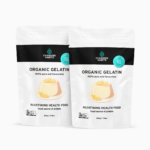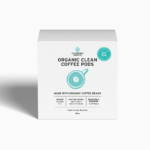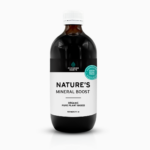On the contrary Ms Kate Carnell, food labels should allow us to choose environmental and animal rights, such as organic vs chemically grown foods, palm oil vs macadamia oil, vegan vs meat eater.
These not only affect our health but also the health of other species that live on the planet and the environment. The food we chose affects everything. Choose ethical foods then we may just save species extinction and the environment. Food labeling must give us these choices.
Palm oil is vegetable oil: AFGC
Nick Xenophon is wrong to suggest that labelling palm oil as vegetable oil is misleading Australian consumers, the Australian Food and Grocery Council (AFGC) said. Palm oil is, in fact, a vegetable oil just like soya bean and corn rapeseed oils which are widely used in manufactured food products, AFGC highlighted. AFGC chief executive Kate Carnell said food labels need to be easy to comprehend and should only contain important product information relating to health, nutrition and safety. “Food labels should not be used as a battleground for issues as diverse as deforestation, animal welfare and human rights,” Carnell said. Carnell praised Senator Xenophon for applauding companies sourcing sustainable palm oil, however. Nestle this week made a global pledge to stop buying palm oil from companies owning or managing plantations or farms linked to rainforest destruction highlighted that food and grocery manufacturers are acting responsibly and voluntarily.
Unilever has also made a commitment to purchase all of its palm oil from sustainable sources by 2015. “It’s encouraging that more and more food manufacturers are moving towards using sustainable palm oil as it become more widely available,” Carnell said. “Currently, demand for sustainable palm oil is outstripping supply from certified plantations in Indonesia and Malaysia,” AFGC strongly supports the need to produce and source palm oil in a more traceable and sustainable way, minimising environmental impact and protecting local smallholders, which is advocated by the Roundtable on Sustainable Palm Oil (RSPO). “Whether there is a label on a product or not, there is no evidence to suggest that labelling palm oil in Australia would change the level or extent of deforestation in Indonesia or Malaysia – or that labelling would save one orangutan or tiger,” Carnell said.
Carnell said Senator Xenophon needed to understand that Australia’s palm oil use was “a drop in the ocean” compared with other developed nations including India and China. Under the RSPO – designed to promote the growth and use of sustainable palm oil through cooperation within the supply chain and stakeholders – companies can purchase Certified Sustainable Palm Oil (CSPO), which has been approved as sustainable, and is grown on certified plantations in Indonesia and Malaysia.








0 Comments